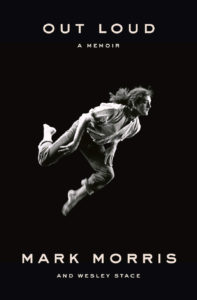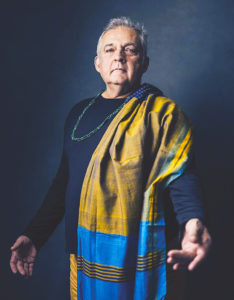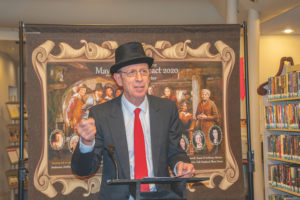TRURO — Warm white light outlines the rectangular room, its glow emanating from battery-operated mushroom puffs and flickering electric votives. At the center of the room is a small circle of light. Around it, seven women form another circle in a quiet ritual of presence. Then, darkness descends.
The facilitator, Patricia van Dijkhuizen, leads us through breathwork. Three deep breaths. Inhale for three, exhale for six. Then double the inhale, hold for six, exhale for six.
“The idea is to really feel that breath pulling from the bottom of your feet, out of the ground, right into the top of your head,” van Dijkhuizen says. “It helps to center people.”
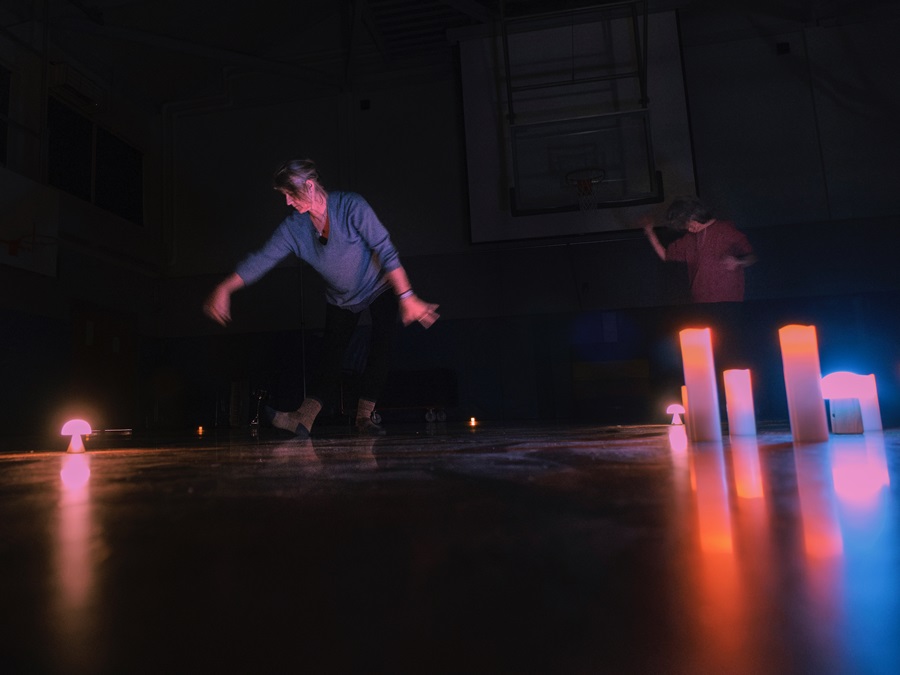
The gremlin of hyperfixation — the one that grips me every Tuesday on deadline — loosens its hold. And as the music starts, it slinks into the shadows.
“Off we go,” says van Dijkhuizen. The women drift out of formation. We are here to dance.
A bright electric guitar chord is threaded with the rain-shower shush of a shaker, the escalating hums of a female vocalist, tinny bongo beats, and DJ remixing. The sound has a reggaeton flavor mixed with hints of salsa, bachata, and pulsing electronica — van Dijkhuizen’s playlist was inspired by three months in Mexico and Brazil.
Spanish phrases swirl in the air as my spine curves and crests in primordial percussive waves. Lunita. Hermana. Alma. Caridad. Harmonia. Silencio. Poderosa. To hear them, to know them, is still to be lost in translation.
Mostly, I keep my eyes closed, as if I am dreaming while awake. But at times, I get distracted. I see my shadow playing against the wall. Or the rectangle of light from Truro Central School’s foyer, where the guy coordinating the classes sits at a table and talks to his mom on the phone.
On the bulletin board above his head, a phrase appears like a fortune cracked from a cookie: “The Magical Yet.” Beneath the words are students’ drawings. Some are self-portraits. Some are abstract renderings of secret realities.
Maybe dancing makes me more susceptible to subliminal messaging — or merely opens my mind to the cheesy. But I am struck by the feeling of hope conveyed by those words. As the song shifts, I feel it: a field of blooming chances to reset and choose differently, to listen honestly and move more intentionally.
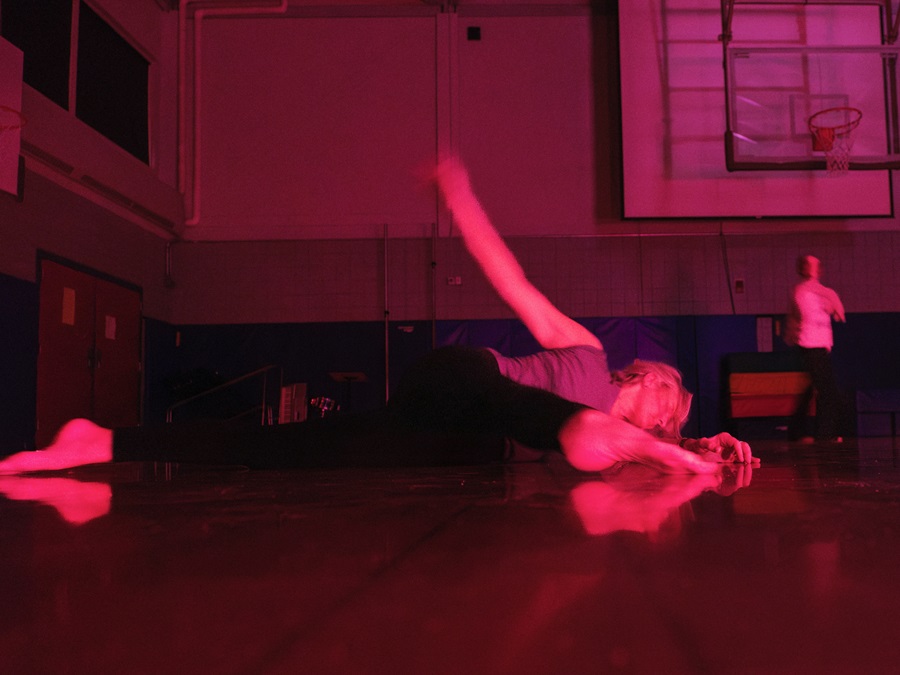
All around me, the women undulate in their own reveries. We’re together, and we’re not. Some movements are slight, contained in their own orbits; others sweep outward, rash paintbrush strokes across the floor or the air. Time dissolves.
Then, suddenly, the speaker twinkles its last hypnotic beat. We return to the circle for 20 minutes of silent meditation.
This year’s Winter Wednesdays programming includes 30 classes spread throughout the week in all four Outer Cape towns and online. This is van Dijkhuizen’s second year of facilitating ecstatic dance, breathwork, and meditation. She and the participants gather at Truro Central School or the Truro Public Library on Tuesdays from 6 to 8 p.m.
“When we’re working in a group format, we’re no longer in our heads,” van Dijkhuizen says. “We’re really dropping down into our bodies, so many of our defense mechanisms disappear.
“What I’m really trying to encourage is that people who are ecstatic dancing or going into other exceptional states of consciousness are really embodied,” she adds.
The experience means different things to different participants, but they share an appreciation for the freedom of expression it allows.
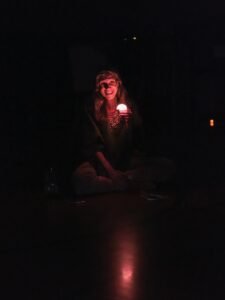
“It’s letting your body move in tune with the music without trying to achieve anything,” says Kathleen Walsh of Brewster. “I try to connect with the beat without any expectation.”
“This group gives me an opportunity to express whatever my body has been holding through the pedestrian movements of every day,” says Ellynne Skove of North Truro, a movement therapist. “I listen to my body as opposed to letting the music guide me.”
“There’s no judgment whatsoever,” adds Provincetown resident Ann O’Hara. “The limits you think you have on your movement just aren’t true. You can fly through the air, spin around, bend — whatever. It’s opened up a lot of spontaneity for me.”
“It’s very relieving, like it releases all the tensions in my body,” says Camila Catucci, an art therapist who lives in Provincetown and teaches the “Astrological Axes: Art Therapy Workshop” on Wednesdays. She occasionally assists van Dijkhuizen in facilitating the class.
“We’re all the guardians of something precious and ancient,” Catucci adds. “Every time I’m in this kind of group, I feel that connection.”
For me, it’s simpler. It feels good to let go of self-consciousness. To move without calculation. It’s not unlike the physical abandon to be found in the thrall of DJ Domenica’s monthly disco night at the Grotta Bar or out in the dunes, where the wind whips up its own rhythm.
As we sit in the closing circle, our spines erect and our nervous systems stilled, van Dijkhuizen reads a poem by David Whyte. “I knew then as I had known before/ life is no passing memory of what has been,/ nor the remaining pages in a great book waiting to be read./ It is the vision of far off things/ seen for the silence they hold./ It is the heart after years of secret conversing/ speaking out loud in the clear air.”
